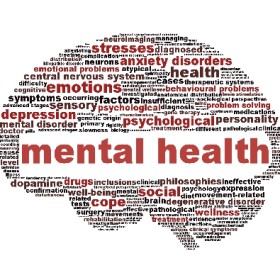 The Isla Vista deadly rampage happened in May, Mental Health Month. Three were shot and the other three stabbed to death. These six college students were killed by a 22 year old with grandiose and persecutory delusions, suicidal ideation and a well thought out plan.
The Isla Vista deadly rampage happened in May, Mental Health Month. Three were shot and the other three stabbed to death. These six college students were killed by a 22 year old with grandiose and persecutory delusions, suicidal ideation and a well thought out plan.
What followed was a week of media coverage on gun control, the NRA, police readiness to assess danger and mental illness. But now the airwaves are quiet–it’s a fading memory. And that’s despite the passionate plea for ‘not one more’ from the father of one of the victims.
What can mental health professions do to prevent these tragedies?
Raise public awareness. Mental disorders are hardly talked about, perhaps one of the last real taboos in modern society. For years the National Alliance for the Mentally Ill has fought to reduce the stigma. Now we all must counteract the stereotypes and social isolation that is standing in the way of our ability to treat more mentally ill people.
Raise professional awareness It’s time to educate and support professionals to manage bias. Crisis intervention training should be required for those on the front lines—primary care physicians, police, teachers and therapists. Having co-response assessment teams will result in earlier diagnosis and more immediate clinical treatment.
Raise patient awareness. Self-stigmatization is a major issue where patients’ shame overrides their psychological symptoms. And the usual response to shame is secrecy. What we need is media coverage that challenges the current distortions about mental illness while disseminating more positive mental health messages.
Raise political awareness. It’s important to explore legal remedies and promote legislation. People with mental health issues should receive care that is comparable to those with physical health problems. Unlike some other conditions, there are viable and effective treatments in the way of medication, psychotherapy and lifestyle behavioral programs.
According to the World Health Organization, one in four people will suffer from a mental problem at some point in their life. Most with these disorders are neither a danger to others nor morally compromised. Recovery is not simply a matter of ‘pulling yourself together.’ And severe forms of psychopathology often have a strong genetic predisposition and are certainly not ‘all in your head.’
Many families hide psychological issues and are deprived of support systems that are vital to coping. And that silence harms those with mental illness as well as our society. Adequate funding for research will not exist until we truly understand the number of people struggling with emotional problems. That requires people to stop hiding.
Mental illness may be the definitive public health issue in the decades to come. And stigma remains the greatest barrier to mental health care. Start telling your stories. Our goal must be to promote social inclusion and reduce discrimination. Speak up. And don’t be afraid to ask for help.










2 Responses to Fighting the Stigma of Mental Illness